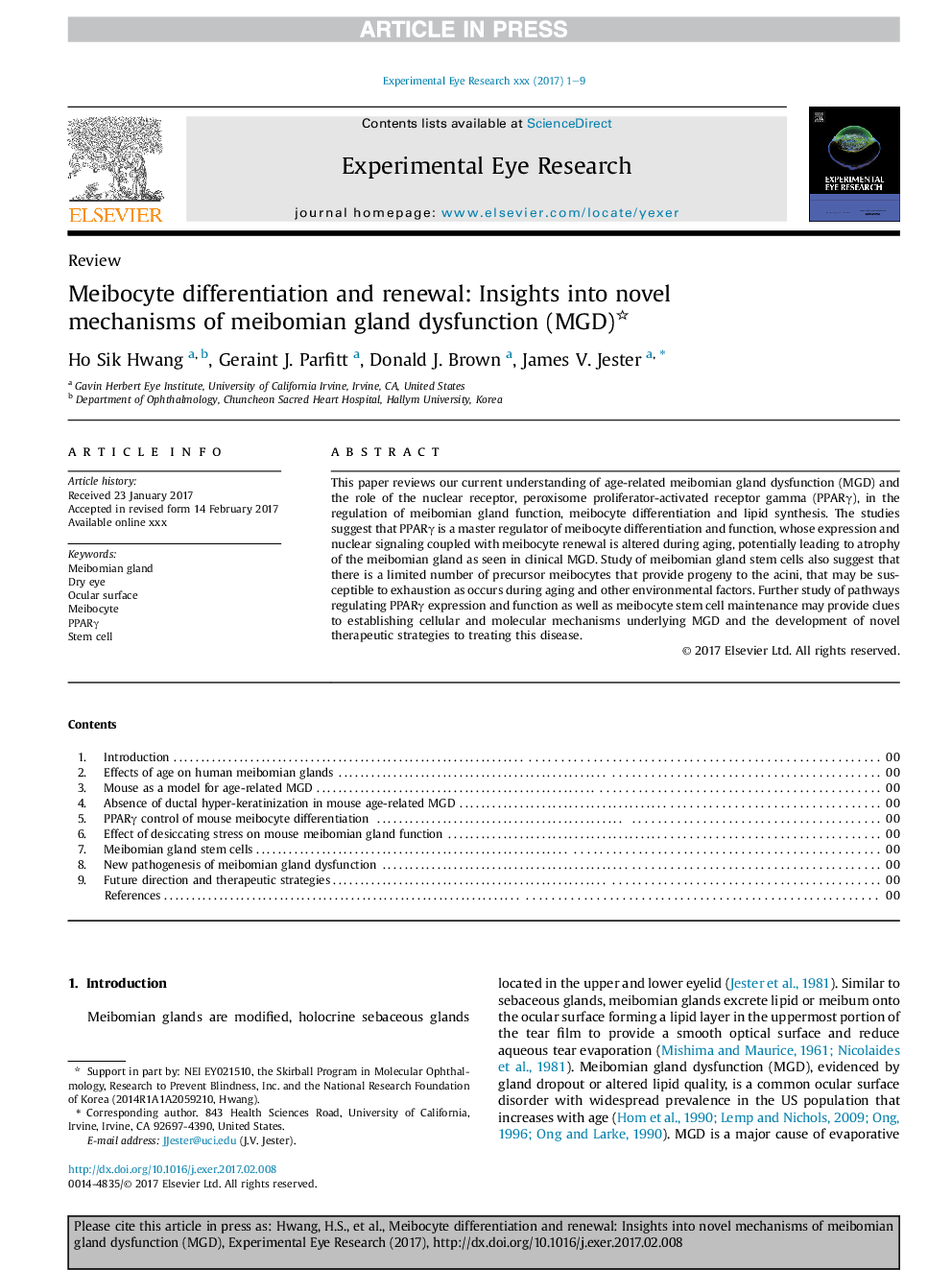| Article ID | Journal | Published Year | Pages | File Type |
|---|---|---|---|---|
| 5703999 | Experimental Eye Research | 2017 | 9 Pages |
Abstract
This paper reviews our current understanding of age-related meibomian gland dysfunction (MGD) and the role of the nuclear receptor, peroxisome proliferator-activated receptor gamma (PPARγ), in the regulation of meibomian gland function, meibocyte differentiation and lipid synthesis. The studies suggest that PPARγ is a master regulator of meibocyte differentiation and function, whose expression and nuclear signaling coupled with meibocyte renewal is altered during aging, potentially leading to atrophy of the meibomian gland as seen in clinical MGD. Study of meibomian gland stem cells also suggest that there is a limited number of precursor meibocytes that provide progeny to the acini, that may be susceptible to exhaustion as occurs during aging and other environmental factors. Further study of pathways regulating PPARγ expression and function as well as meibocyte stem cell maintenance may provide clues to establishing cellular and molecular mechanisms underlying MGD and the development of novel therapeutic strategies to treating this disease.
Related Topics
Life Sciences
Immunology and Microbiology
Immunology and Microbiology (General)
Authors
Ho Sik Hwang, Geraint J. Parfitt, Donald J. Brown, James V. Jester,
